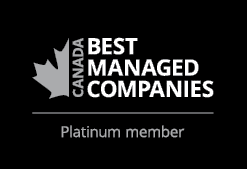RVing can be a fun way to see the world and spend time with your family. For many Canadians, hitting the open road, setting up camp and enjoying nature is a perfect vacation. But because it’s bigger and heavier than an average car or truck, owning and operating an RV brings a few unique challenges.
If you’re about to embark on an RV trip, it’s important to follow some best practices. We’ve put together our best tips for before, during and after your next journey to make sure you get the most out of your experience.
Before Your Trip
- Know the weight capacity of your RV and ensure that the total weight of passengers, luggage and supplies you are taking with you doesn’t exceed it.
- Perform a complete pre-trip inspection. To start, do a general walk around the exterior and interior of the vehicle to look for any obvious hazards. Once that is complete, you should move on to some more specific checks:
- Check your wheels. Make sure your tire pressure is correct, and they are in good condition with adequate tread depth.
- Check your mirrors. Both you and your co-pilot should be able to see down the sides of your unit. RVs are equipped with convex mirrors to increase your field of vision and allow you to see things in your blind spot.
- Check your lights. Test all your headlights, taillights and turn signals and replace any bulbs as needed.
- Check your fluids. Top up your windshield wiper fluid, brake fluid and oil to the correct level.
- Check your seatbelts. You should have enough seat belts in the vehicle for all passengers on the trip.
- Check your insurance. Before you hit the road for the first time, make sure your insurance is valid and up-to-date. To help, Cowan has an online quoting tool created specifically for trailers, campers and RVs:
During Your Trip
- Have a co-pilot whenever possible while driving. This will allow you to focus on the road while they help you navigate and provide some company during long periods of driving.
- Know your RV’s height. When driving in unfamiliar areas, knowing the clearance you have will prevent issues going under bridges, underpasses or drive-throughs.
- Watch your speed, especially at night and during dusk.
- Slow down on blind curve areas of the roadway.
- Use your high beams at night to see animals and other obstructions. Be sure to turn them off when there is oncoming traffic.
- Always wear a seat belt—it’s your best safety defence in an accident. All passengers should have a seat and be buckled in at all times while driving.
- If you get into an accident while driving your RV, pull off to the side of the road and call the local police department. If possible, move the RV to the side of the road and ensure that everyone in your vehicle and any other vehicles involved is okay.
After Your Trip
- Clear out any food and garbage, so you do not attract bugs, rodents or other wildlife and to prevent bad odours.
- Store the RV in a safe, secure location. If you are storing it at your home, you should check with your city’s bylaw office for any regulations you might need to follow.
Taking some time to follow these simple steps before, during and after trips, can help make sure your RV experience is fun, safe, and worry free!

-min.jpg?width=400&name=MFA_Blog%20(1)-min.jpg)
-min.jpg?width=400&name=AJ%20Feltis%20(1)-min.jpg)
-min.jpg?width=400&name=Healthy_Workplace_Blog%20(1)-min.jpg)

